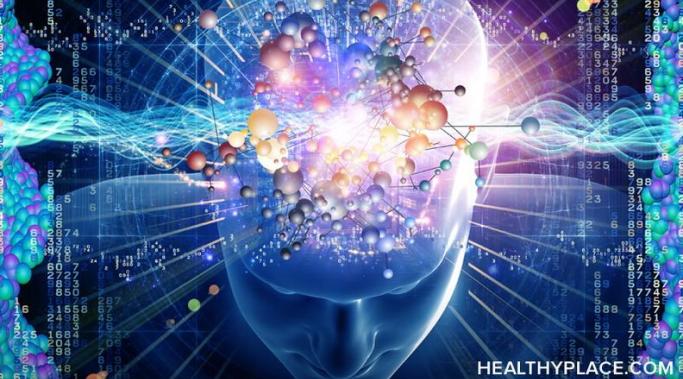Happy holidays, all. I am back from my family sojourn and feeling exhausted from it. Which is odd, actually, because nothing stressful happened. I worked, we ate, we played cards we pretended to be happy (some more than others) and the holiday passed by.
And a giant "meh" was heard by all.
And yet still I find myself crippled with exhaustion and stress post-holiday. Why, exactly, is that?
Breaking Bipolar
The holidays are no longer around the corner; the holidays are now here - on top of us. The holidays have overtaken us. They have lay siege to our everyday lives and they have won. The holidays! Ack!
And while this sieging of lives has its plusses (like prezzies) it also has its downsides - like instability.
So now that you're staring the fat man in the eye, here's what you need to know to have a safe holiday and an unhospitalized new year.
Last week we talked about five of the top things that we learned about mental illness last year:
Statistics on Prevalence of Bipolar Disorder
How often is Bipolar Diagnosis Mistaken for Depression?
Predictor of Bipolar Treatment Success
Antimanic Treatment Efficacy - Drugs Compared
Are Two Antidepressants Better Than One?
Today we will discuss 6-10 in part two of this article.
There's nothing new under the sun.
Or so I've been told. And while nothing new may exist, we sure learn about new things all the time. People do lament that our understanding of bipolar disorder and other mental illnesses is too lacking, but each year we learn more about the human brain and mental illness.
Here then are top ten things we learned this year about mental illness.
Recently someone who I consider a friend had some rather unfortunate things to say about me, including that I'm narcissistic. This, I do not believe to be true. Not even a little. Nevertheless, this particular insult echoed inside my brain over and over until I was sure it was stabbing the inside of my head with heated spikes.
I couldn't let it go.
I tried, really I did. I told myself it's not about me. It's just one person's opinion at one moment. It isn't true. And so on, and so forth. But my brain had a death-grip on the insult and refused to let it slip.
So what do you do when you're obsessive, bipolar brain turns to thoughts of crazy?
A little while back I went through an amazing phase of remission. I started a new medication and it worked like magic in a very short period of time. In short, it was a miracle.
At the beginning, I kept the miracle to myself. Others noticed I had changed but no one said anything and neither did I.
But eventually, a few weeks passed and I just had to tell people how great I felt. I thought I was "safe." I thought the remission would be around for a while. I thought I would be able to announce the good news and then not disappoint people when the treatment stopped working.
I, of course, was wrong.
As fast as the remission came, it left. And I couldn't get it back. It felt like I was being punished about being happy about, well, being happy.
Recently, someone who was new to the world of bipolar disorder asked me if there was a cure for bipolar disorder or if he had to live like this forever. I had to, of course, tell him there is no cure. I felt like I was telling him his dog was about to die. I felt like knowing this, he might give up.
I have said to people many times - your psychiatrist works for you. You pay the psychiatrist. They are your employee. That means you're the one who decides if they are hired or fired. But choosing a psychiatrist is no mean feat as someone who others consider "good" may not be "good" for you. So the only thing to do is to research and interview a doctor - just as you would any employee.
Recently a doctor stopped by my blog and asked about types of thoughts people with bipolar disorder have. Specifically, he was asking about "crowded" thoughts. Crowded thoughts are likened to "too many people jammed into this office." Crowded thoughts constitute the experience of having too many thoughts at one time.
So it got me to thinking, what are the types of thoughts and what types of thoughts are typical for bipolar disorder.
If you have bipolar disorder or another mental illness it's easy to find yourself in a pit of self-hatred. If the depression doesn't get you there, regret over what you've done when you're manic might. Self-hatred is just all too common for those of us with mental health issues.
And self-hatred produces all kinds of effects - like ignoring self-care. You might find yourself not eating, not showering, not exercising, not being kind to yourself or constantly hearing a voice of hatred in your head. And the trouble with all these things is that not only are they "not good for you" they make you feel worse both in the short and the long term.
Making good self-care choices is a way of fighting back.

